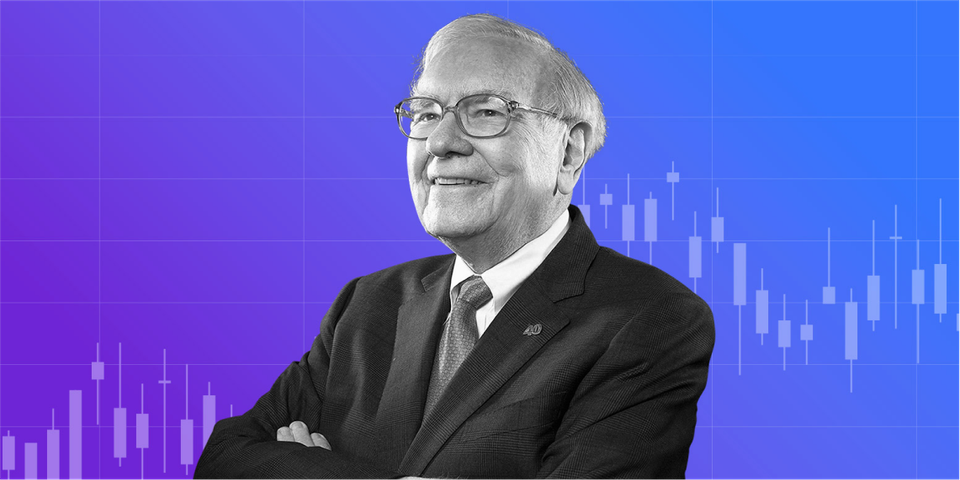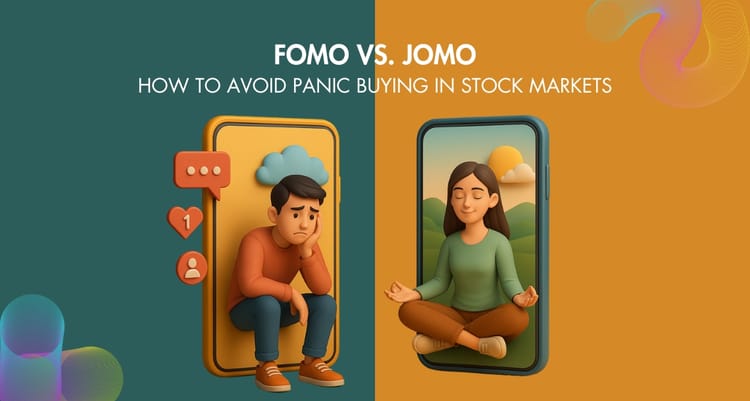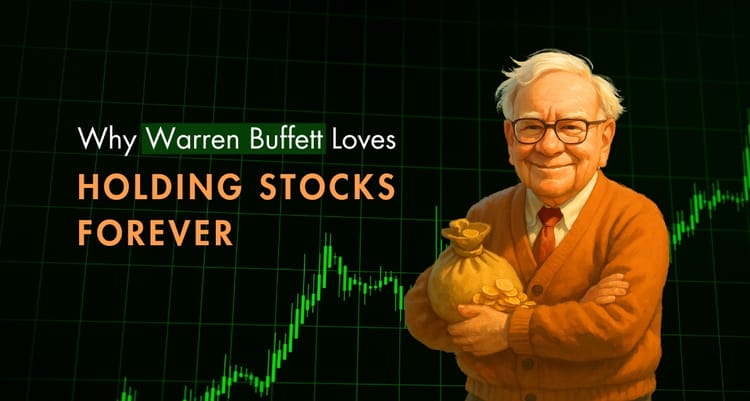Warren Buffett's Investment Philosophy

When it comes to making money in the stock market, one name stands out like a shining beacon of success – Warren Buffett. You may have heard of him, the "Oracle of Omaha," but do you know what makes his investment strategy so special? Let's dive into the world of Warren Buffett's investment philosophy, and by the end of this article, you'll have a clearer picture of the man behind the magic.
Keep It Simple
Warren Buffett champions a straightforward principle that's accessible to everyone: "Never invest in a business you cannot understand." In layman's terms, this means you should only put your money into companies whose operations you comprehend. If you can't explain how a business makes money, it's probably not the best investment. Stick to what you know and understand.
Think Long-Term
While many investors chase quick profits, Buffett takes a more patient approach. He advises, "Our favorite holding period is forever." In essence, this means he looks for companies he's comfortable owning for the long haul. By thinking long-term, you can weather the storm of market volatility and reap the rewards of compound interest.
Find a Good Deal
Here's where Buffett's magic becomes evident. He seeks stocks trading below their intrinsic value, a concept he calls the "margin of safety." It's akin to purchasing a $100 bill for $80. In investing, this means buying stocks at a discount, which can protect you from major losses if the market takes a dip.
Invest in What You Believe In
Buffett often puts his money into companies with strong "economic moats." Picture this as a protective fortress around a business, making it difficult for competitors to infringe on its territory. These economic moats can be anything from brand loyalty to technological patents – factors that give a business an edge over its rivals.
Concentrate, Don't Diversify Too Much
While some experts advocate spreading your investments across a multitude of assets, Buffett argues for a more focused approach. He famously says, "Diversification is protection against ignorance." In simpler terms, he suggests putting more money into fewer, well-researched investments.
Cash is King
Warren Buffett has a fondness for cash – not in the sense of hoarding it, but in keeping some on hand for opportunities. It's like having money in your wallet when your favorite store has a massive sale – you're ready to seize great deals when they come your way.
Stay Calm and Rational
Emotions can lead investors astray, causing them to make impulsive decisions. Buffett advises maintaining a calm, rational approach to investments, especially during times of market turbulence. Fear and greed can cloud judgment, leading to costly mistakes.
Never Stop Learning
Buffett's thirst for knowledge is insatiable. He reads extensively and believes that continuous learning is essential for making sound investment decisions. To put it plainly, staying informed and educated is the key to making wise choices.
Buffett in Action: A Real-Life Example
Let's bring these principles to life with an example. Imagine you've been following a company that you truly understand – a tech giant with a strong economic moat. Its stock price recently dipped due to market panic over a minor issue, causing its shares to be undervalued.
Following the "Buffett Way," you decide to invest. You see this as a great deal, with a margin of safety. You put your money into the stock with the intent to hold it for the long term. You remain calm and rational during market fluctuations, and while you continue to learn and stay informed about the company's developments.
Over time, as the business grows and recovers, the stock price rises. You benefit from the power of compound interest as your investment appreciates steadily. Thanks to your adherence to Warren Buffett's philosophy, you've not only preserved your capital but also seen it grow.
Unlocking the Magic
Warren Buffett's approach to investing isn't some secret code meant only for financial experts. It's actually a set of pretty basic ideas that anyone can use to do well with their money. He's not into getting super rich super fast. Instead, he's about making clever decisions, being patient, and letting time and the power of saving and investing do their thing.
Whether you're just starting out with investing or you've been at it for a while, the "Buffett Way" has some really good tips. It's a timeless method to make your money grow, and it's all about keeping things simple, staying cool, and waiting for your money to grow.
Think about it this way: Even the best investor in the world, Warren Buffett, started with just a little bit of money. So, if you get what he's talking about and use these ideas, you can also see your money grow and become financially secure. It's kind of like a smart and simple way to make your money work for you over time.
Frequently Asked Questions (FAQ)
1. Who is Warren Buffett?
Warren Buffett, known as the "Oracle of Omaha," is one of the most successful investors in the world. He is the chairman and CEO of Berkshire Hathaway and is renowned for his long-term investment strategies and value investing philosophy.
2. What is Warren Buffett's investment philosophy?
Buffett's investment philosophy is centered around value investing, which involves buying stocks that are undervalued relative to their intrinsic value. His approach includes understanding the business, thinking long-term, seeking a margin of safety, investing in companies with economic moats, concentrating investments, maintaining liquidity, staying calm and rational, and continuously learning.
3. Why does Buffett advocate for investing in businesses you understand?
Buffett believes that investing in businesses you understand helps you make informed decisions. If you comprehend how a business makes money, you're better equipped to evaluate its potential and risks. This approach reduces the chances of investing in companies with uncertain futures or complex operations.
4. What does Buffett mean by "Our favorite holding period is forever"?
Buffett prefers to invest in companies he is comfortable holding for the long term. This means he looks for businesses with durable competitive advantages and strong management. Holding investments for an extended period allows for the benefits of compound interest and helps weather short-term market volatility.
5. What is the "margin of safety" in value investing?
The margin of safety is a concept where investors buy stocks at a price significantly below their intrinsic value. This approach provides a cushion against errors in analysis or market downturns, reducing the risk of significant losses.
6. What are economic moats, and why are they important?
Economic moats are competitive advantages that protect a company from competitors. These can include brand loyalty, patents, cost advantages, network effects, and regulatory advantages. Companies with strong economic moats are more likely to maintain profitability and growth over time.
7. Why does Buffett suggest concentrating investments rather than diversifying too much?
Buffett believes that diversifying too much can dilute the potential returns of well-researched investments. By concentrating on fewer, high-quality investments, investors can maximize their returns from their best ideas. However, this approach requires thorough research and confidence in one's investment choices.
8. Why does Buffett keep cash on hand?
Buffett keeps cash on hand to take advantage of opportunities that arise during market downturns or when high-quality companies become undervalued. Having liquidity allows for flexibility and the ability to make investments without having to sell existing holdings at inopportune times.
9. How does Buffett recommend managing emotions in investing?
Buffett advises maintaining a calm and rational approach to investing. Emotional decision-making, driven by fear or greed, can lead to impulsive actions and poor investment choices. Staying disciplined and focused on long-term goals helps mitigate the impact of market volatility.
10. What role does continuous learning play in Buffett's investment strategy?
Buffett is a voracious reader and lifelong learner. He believes that staying informed about the market, industries, and individual companies is crucial for making sound investment decisions. Continuous learning helps investors adapt to changing conditions and identify new opportunities.
11. Can beginners apply Warren Buffett's investment principles?
Yes, beginners can apply Buffett's principles. His approach emphasizes simplicity, understanding, patience, and long-term thinking, which are accessible to investors of all levels. By focusing on these core tenets, beginners can build a solid foundation for successful investing.
12. How can I start investing the "Buffett Way"?
To start investing the "Buffett Way," follow these steps:
- Invest in businesses you understand.
- Think long-term and be patient.
- Look for undervalued stocks with a margin of safety.
- Focus on companies with strong economic moats.
- Concentrate on high-quality investments.
- Keep some cash on hand for opportunities.
- Stay calm and rational during market fluctuations.
- Continuously educate yourself about investing.
By incorporating these principles into your investment strategy, you can aim to achieve steady and sustainable growth in your portfolio.






Member discussion